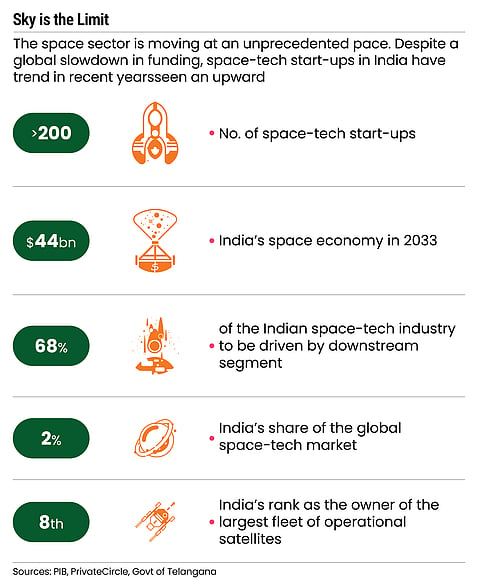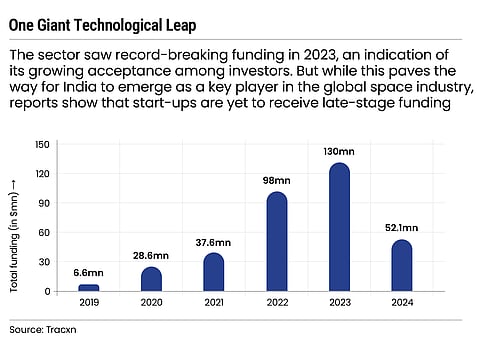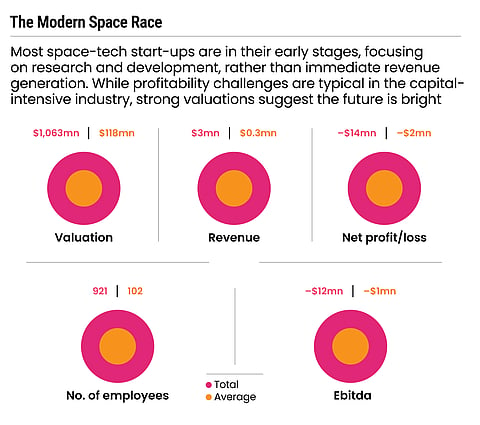Watch Out Rankings 2025: Top 5 Start-Ups in the Space-Tech Segment
India’s most promising sector is shooting for the stars
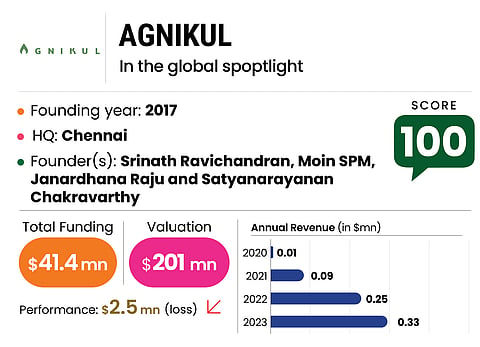
Going to space should be affordable, was the founding vision behind Agnikul. And it was with that resolve that the space-tech start-up was incubated at IIM Madras in 2017 by Srinath Ravichandran, Moin SPM and Satyanarayanan Chakravarthy. The purpose of the start-up was to design and build a product that makes earth to space journeys quick and affordable.
The space start-up, in 2021, signed a framework agreement with the department of space for access to Indian Space Research Organisation (Isro) facilities and for gaining technical expertise for the development of its two-stage small-satellite Agnibaan launch vehicle.
'We deconstructed our journey into quantifiable and meaningful milestones' Srinath Ravichandran, Chief executive
The company inaugurated its first privately-built launchpad at Sriharikota in Andhra Pradesh in 2022. Its first major success was the launch of its rocket Agnibaan SOrTeD on May 30, 2024. The rocket featured the first fully 3D-printed single-piece engine, and it attracted the attention of both the government as well as the private sectors.
Agnikul’s Ravichandran says the company has one of the most affordable launch solutions available in the world. This is not only because the space vehicle is built and designed in India but also because the vehicle is built on fundamental technologies that allow for the unit economics to be lower, the company says. Currently, the company is guided by more than 200 engineers and 45 scientists of Isro.
Ravichandran also points out that the company’s founders deconstructed their journey into a series of measurable, quantifiable and meaningful milestones both from a technology and commercial standpoint and have consistently managed to achieve their targets.
“This could be something like just firing a 3D-printed engine in our early phase to more recently getting a successful launch done at a very low cost,” Ravichandran adds.
Skyroot
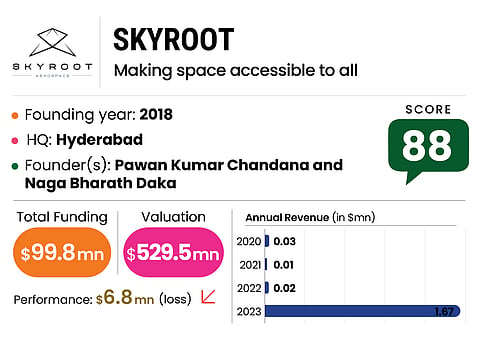
Founded in 2018 by former ISRO engineers Pawan Kumar Chandana and Naga Bharath Daka, the space-tech start-up has a singular goal: to make space accessible to all. In August 2020, Skyroot became the first Indian company to test fire a full-scale liquid propulsion engine.
'The long-term perspective guides our strategic decisions from technology development to market approach' Pawan K Chandana, Co-founder and chief executive
Additionally, Skyroot’s Vikram-S was India’s first privately-developed rocket in India. The company achieved a major milestone when it successfully stage-fired the second stage of Vikram 1 (a privately-developed orbital rocket) space launch vehicle in March 2024.
In 2025, the company plans to conduct multiple launches of Vikram-1. Simultaneously, it will fast-track the development of Vikram-2, which will feature advanced propulsion and higher payload capacity.
Dhruva Space
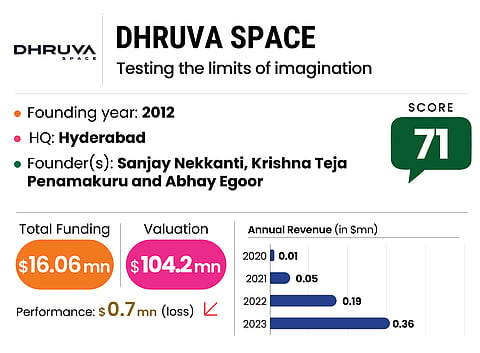
The space-tech company is focused on creating application agnostic satellite platforms. Founded in Hyderabad in 2012, the company’s stated goal is to develop exceptional small satellite systems that will help space exploration technology meet human imagination.
'When you truly believe in what you are doing and your start-up, you will be relentless about it' Sanjay Nekkanti, Chief executive
In 2021, Dhruva Space became the first Indian private company to secure an end-to-end design-to-development contract for spacecraft solar panels from the Union government. On June 18, 2024, the company completed its maiden satellite mission, where two of its satellites completed 15,000 orbits.
The company has secured investments from Indian Angel Network, IvyCap Ventures, Silverneedle Ventures, Blume Founders Fund and Sidbi among others.
Shooting Stars
Space aspirations are on the rise. Buoyed by significant innovations and substantial government support, start-ups in the sector are flourishing. The next frontier: scaling businesses, while focusing on quality
